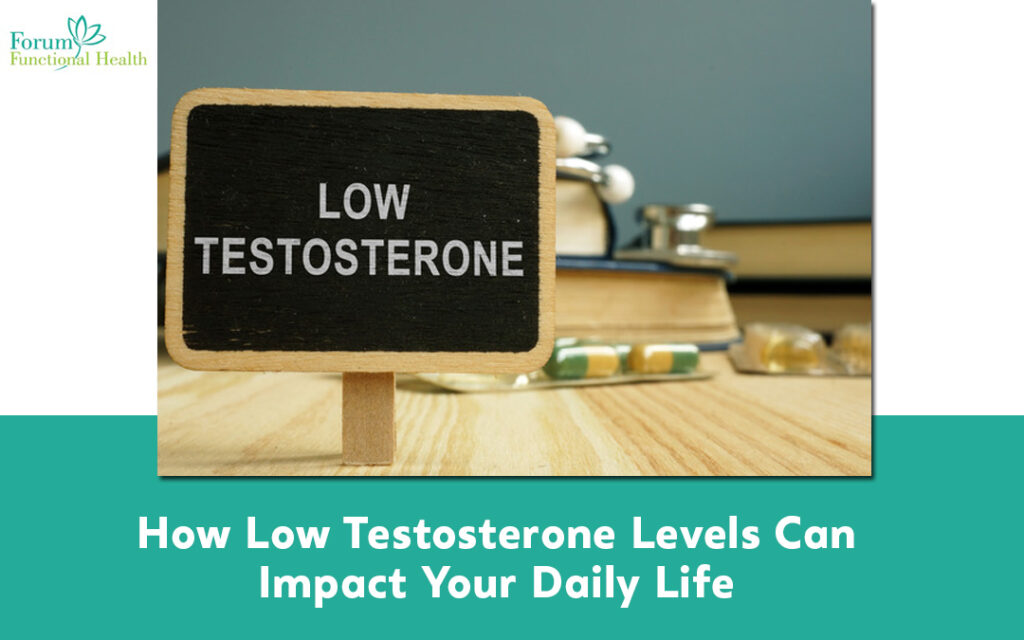How Low Testosterone Levels Can Impact Your Daily Life

Low testosterone levels, also known as Low T, can have a significant impact on various aspects of daily life for men. From energy levels to mood and overall well-being, understanding the implications of low testosterone is crucial for maintaining a healthy lifestyle. In this blog, we’ll explore how Low Testosterone levels can affect different areas of daily life and discuss potential treatment options.
Energy Levels and Fatigue: One of the most noticeable effects of low testosterone levels is a decrease in energy levels. Testosterone plays a vital role in regulating energy production within the body. When testosterone levels are low, men may experience fatigue, lethargy, and a general lack of motivation. This can make it challenging to perform daily tasks, engage in physical activity, or even concentrate at work.
Mood and Emotional Well-being: Testosterone also influences mood and emotional well-being. Low testosterone levels have been linked to symptoms of depression, irritability, and mood swings. Men may find themselves feeling more anxious or stressed than usual, which can impact their relationships and overall quality of life. Understanding the emotional implications of low testosterone is essential for seeking appropriate support and treatment.
Sexual Health and Libido: Testosterone plays a crucial role in sexual health and libido. Men with low testosterone levels may experience a decrease in sex drive, erectile dysfunction, or difficulty achieving orgasm. These issues can have a significant impact on intimate relationships and self-esteem. It’s essential to address these symptoms promptly to restore sexual function and improve overall well-being.
Muscle Mass and Strength: Another area affected by low testosterone levels is muscle mass and strength. Testosterone helps maintain muscle tissue and contributes to muscle growth. When testosterone levels are low, men may experience a decline in muscle mass, increased body fat, and reduced strength. This can affect physical performance, exercise capacity, and overall mobility.
Cognitive Function and Memory: Testosterone also plays a role in cognitive function and memory. Low testosterone levels have been associated with cognitive decline, poor concentration, and memory problems. Men may find it challenging to focus on tasks or retain information, which can impact work performance and daily functioning.
A Forum Functional Health approach to addressing hormonal imbalances, such as low testosterone levels, prioritizes holistic assessment and individualized care. This approach encompasses various elements, starting with a comprehensive evaluation of lifestyle, nutrition, stress levels, and overall health to identify underlying factors contributing to the hormonal imbalance.
Based on this assessment, tailored treatment plans are crafted to address the unique needs of each individual, emphasizing lifestyle modifications, stress management techniques, nutritional support, and regular monitoring. These interventions aim to naturally support hormone balance and overall well-being.
Where testosterone levels are severely low and necessitate medical intervention, testosterone injection therapy may be recommended by a healthcare professional. Testosterone injection therapy involves the administration of intramuscular injections, typically on a weekly or less frequent basis.
Regular monitoring through blood tests is crucial to ensure the therapy’s effectiveness and adjust the dosage as needed, ensuring optimal hormone levels and overall health outcomes. This integrated approach combines lifestyle modifications with medical intervention, offering a comprehensive and personalized solution to address hormonal imbalances and support long-term wellness.
